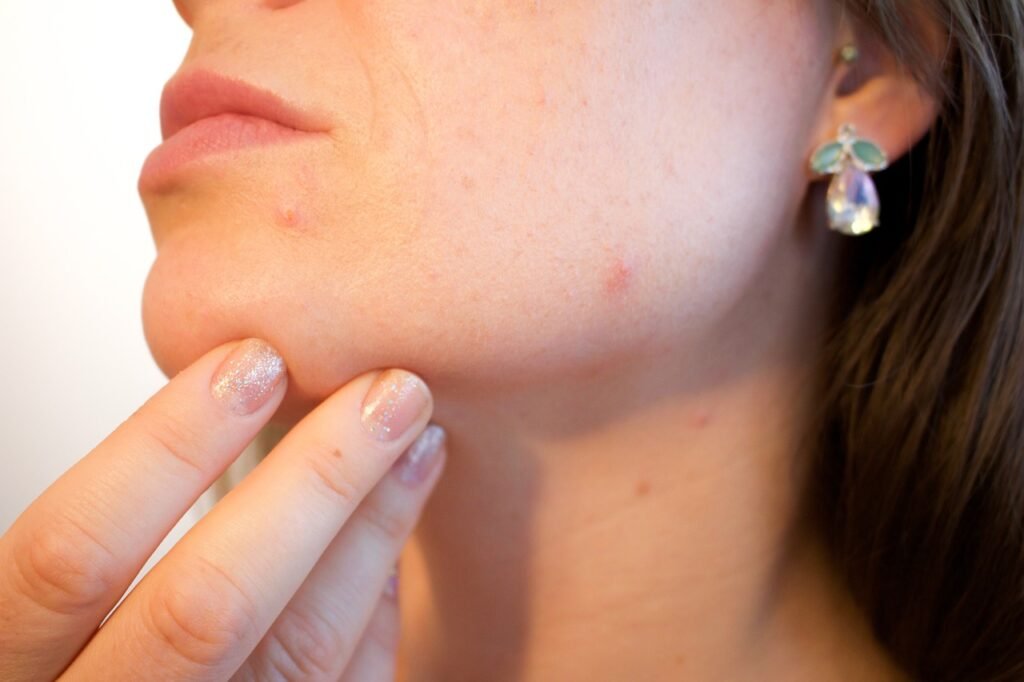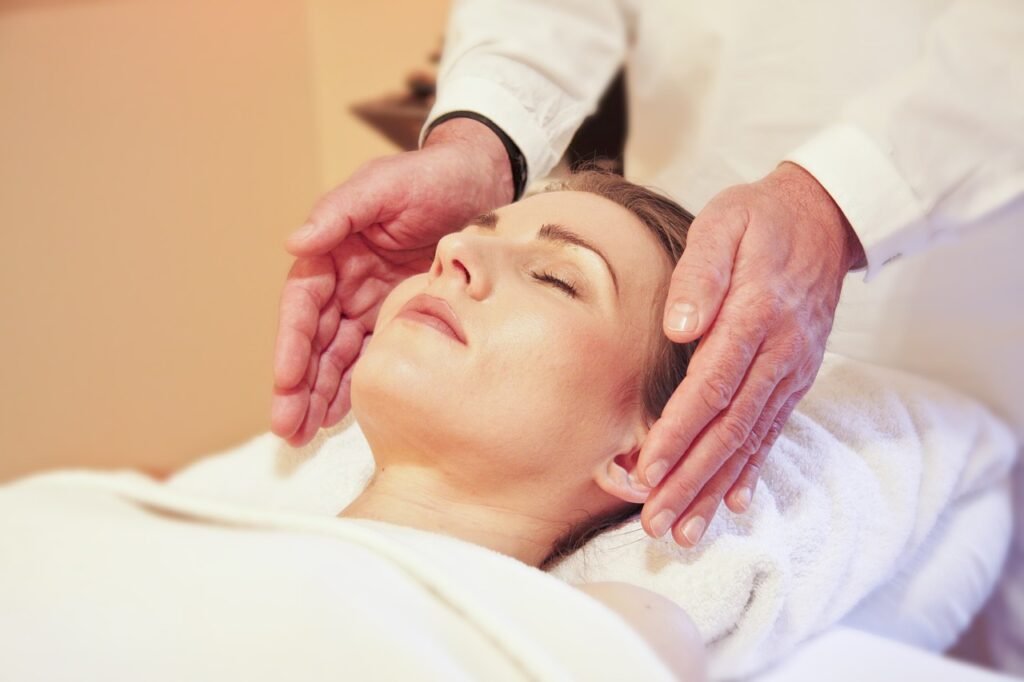
Intro
When it comes to skincare, most people focus on topical treatments and products to combat acne. However, what many don’t realize is that there is a strong connection between gut health and acne. The health of your gut can significantly impact the condition of your skin, including the development and severity of acne. Let’s explore the surprising relationship between gut health and acne, and how you can improve both for clearer, healthier skin.
Understanding Acne and Its Common Causes
Acne is a widespread skin affliction that results from the blockage of hair follicles by a mix of oil and dead skin cells. This blockage fosters an environment ripe for the development of pimples, blackheads, and whiteheads. Hormonal fluctuations, particularly prevalent during puberty, pregnancy, and certain phases of the menstrual cycle, significantly influence acne’s emergence and severity. Genetics also play a pivotal role, as a family history of acne can increase one’s susceptibility to developing this condition.
Beyond these internal factors, external contributors such as diet and stress levels are increasingly recognized for their impact on acne. A diet heavy in refined sugars and dairy products has been linked to aggravated acne symptoms in some individuals. Similarly, chronic stress can disrupt hormone balances, further exacerbating skin issues. While the fundamental causes of acne lie in clogged follicles and bacterial overgrowth, it’s clear that a complex interplay of genetic, hormonal, and lifestyle factors influences its development and persistence.
Understanding these causes is vital, as it informs both the treatment and prevention strategies that can be employed. Addressing acne effectively requires a holistic approach that considers not just the immediate symptoms but also the underlying factors, including those related to gut health, as discussed later in this blog post. By recognizing the multifaceted nature of acne, individuals can adopt a more comprehensive skincare routine that tackles the root causes of acne, paving the way for clearer and healthier skin.
The Gut-Skin Axis Explained
The term “gut-skin axis” refers to the intricate, bidirectional communication network that exists between the gastrointestinal tract and the skin. This connection is mediated through a variety of pathways, including the immune system, hormones, and metabolic products of the gut microbiota. The gut microbiota, a diverse community of microorganisms living in our digestive tract, plays a pivotal role in this relationship. It helps regulate the immune response, synthesizes essential nutrients, and protects against pathogens.
An imbalance in the gut microbiota, known as dysbiosis, can disturb this communication network. Dysbiosis can trigger systemic inflammation, which is a known aggravator of skin conditions such as acne. It is not just the presence of harmful bacteria that can lead to skin issues, but also a lack of beneficial bacteria which is essential for a balanced immune response and healthy skin.
The gut-skin axis also underscores the importance of the intestinal barrier function. A healthy gut barrier prevents unwanted substances from entering the bloodstream. However, when this barrier is compromised, a condition commonly referred to as “leaky gut” occurs. This allows for the translocation of bacteria and toxins into the systemic circulation, potentially leading to inflammatory responses that can manifest on the skin.
Moreover, the gut microbiota influences the skin through the production of short-chain fatty acids (SCFAs), which are metabolic by-products generated from the fermentation of dietary fibers. SCFAs have anti-inflammatory properties and can help modulate the immune response, further illustrating the deep interconnectedness between gut health and skin condition.
Understanding the gut-skin axis illuminates how disturbances in the gut microbiota and the intestinal barrier can have far-reaching effects on the skin. It underscores the importance of maintaining a healthy, balanced gut microbiome for not only digestive wellness but also for the maintenance of healthy, acne-free skin.
How Poor Gut Health Can Worsen Acne
When the equilibrium of the gut microbiome is disrupted, a series of events unfold that can aggravate acne conditions. This imbalance, known as dysbiosis, paves the way for increased levels of systemic inflammation. Inflammation is a critical factor in the development and exacerbation of acne, as it can stimulate the sebaceous glands to produce more oil, leading to clogged pores and acne outbreaks. Additionally, a compromised gut barrier, often stemming from poor gut health, permits the leakage of toxins and pathogenic bacteria into the bloodstream. This breach not only contributes to systemic inflammation but can also provoke an immune response that exacerbates skin irritation and acne formation.
Moreover, the relationship between the gut and skin involves the regulation of hormones that can influence acne. For instance, an unhealthy gut can impact the levels of insulin and insulin-like growth factor (IGF-1), both of which have been implicated in acne development. These hormones can increase sebum production and keratinocyte proliferation, further worsening acne symptoms.
The interplay between diet and gut health also cannot be overstated. Diets that negatively affect the gut microbiome, such as those high in sugar and processed foods, can enhance inflammation and dysbiosis, subsequently influencing acne severity. The resulting imbalance can decrease the diversity and number of beneficial bacteria, limiting their ability to combat inflammation and protect against pathogens.
Addressing gut health offers a promising avenue for managing and potentially alleviating acne. Through strategic dietary choices and lifestyle changes, it is possible to restore gut microbiome balance, reduce inflammation, and thereby mitigate the impact of poor gut health on acne.
Probiotics: The Link Between Gut Health and Clear Skin

Incorporating probiotics into one’s diet emerges as a pivotal strategy for those aiming to bolster their gut health with an eye towards mitigating acne symptoms. These beneficial microorganisms play a crucial role in the restoration and maintenance of a balanced gut microbiome, an essential component for the reduction of systemic inflammation which has a direct impact on skin health. By enhancing the presence of beneficial bacteria, probiotics help to suppress the growth of harmful bacteria and restore harmony within the gut environment. This equilibrium is vital for minimizing the inflammatory processes that can lead to the exacerbation of acne.
Read our Guide to Taking Probiotics While on Antibiotics Here.
Research underscores the potential of probiotics to significantly influence skin health positively. Through various studies, probiotics have been noted for their ability to modulate the immune system, thereby reducing skin inflammation and preventing the overproduction of sebum which is often a precursor to acne. They also aid in enhancing the gut barrier function, which prevents harmful substances from leaking into the bloodstream and triggering inflammatory responses that can manifest on the skin.
Foods rich in probiotics such as yogurt, kefir, kombucha, and fermented vegetables are readily accessible options for those looking to increase their intake of these beneficial bacteria. For individuals with dietary restrictions or preferences that make consuming these foods challenging, probiotic supplements provide an alternative means to obtain the skin health benefits associated with a balanced gut microbiome.
Integrating probiotics into one’s dietary regimen is not only a step towards improving gut health but also a proactive measure against acne. By supporting the gut’s natural balance and function, probiotics offer a unique and holistic approach to skin care, targeting one of the underlying causes of acne from within. This strategy, when combined with a comprehensive skincare and dietary plan, can contribute significantly to the attainment of clearer, more vibrant skin.
Dietary Choices and Their Impact on Gut Health and Acne
The foods we consume can have a profound impact on the health of our gut microbiome, which in turn influences the condition of our skin, including acne. A diet laden with processed foods, high sugar content, and unhealthy fats can lead to an imbalance in the gut microbiome, known as dysbiosis. This imbalance fosters an environment conducive to inflammation, a known trigger for acne flare-ups. Conversely, opting for a nutrient-rich diet that emphasizes whole foods can bolster the health of the gut microbiome.
Here is a list of our favorite Books on Holistic Nutrition.
Incorporating a variety of fruits and vegetables into your diet is beneficial as they are packed with vitamins, minerals, and antioxidants that can help reduce inflammation. These foods are also high in fiber, which is crucial for maintaining a healthy gut. Fiber acts as a prebiotic, feeding the beneficial bacteria in the gut and promoting a balanced microbiome.
Whole grains and lean proteins also contribute to gut health by providing the necessary nutrients without the added burden of excessive fats and refined sugars that can exacerbate acne. Omega-3 fatty acids, found in fish such as salmon and in flaxseeds, are particularly effective at combating inflammation, further supporting skin health.
Limiting the intake of dairy products and foods with a high glycemic index can also be beneficial. These foods have been linked to increased sebum production and insulin levels, which can worsen acne symptoms.
Making conscious dietary choices can therefore significantly influence the health of your gut and, by extension, the clarity of your skin. By prioritizing whole, nutrient-dense foods and minimizing the intake of processed and high-sugar foods, you can support a healthy gut microbiome and potentially reduce the occurrence of acne.
Practical Tips for Improving Gut Health to Combat Acne
To enhance your gut health with an aim to mitigate acne, consider integrating several straightforward lifestyle adjustments. Begin by diversifying your diet to include an abundance of probiotic-rich foods such as kefir, miso, and tempeh. These foods introduce beneficial bacteria into your gut, fostering a balanced microbiome. Emphasizing the consumption of fibrous foods is equally important. Sources like legumes, oats, and various fruits and vegetables act as prebiotics, nourishing the good bacteria in your gut.
Ensuring adequate hydration is a simple yet effective strategy. Drinking plenty of water throughout the day aids in the digestion process and helps in maintaining optimal gut flora balance. Additionally, focusing on regular, moderate exercise can stimulate your digestive system and contribute to a healthier gut environment.
Limiting the intake of processed and sugary foods can have a profound impact. Such foods often disrupt the delicate balance of your gut microbiome, leading to inflammation that can worsen acne. Similarly, being mindful of your alcohol and caffeine consumption is advisable, as excessive intake can negatively affect gut health.
Engaging in stress-reduction activities such as meditation, yoga, or even light walking can further support gut health. Stress is known to have a detrimental effect on the gut microbiome, thereby exacerbating skin conditions like acne. Prioritizing sleep is crucial; a lack of restful sleep can lead to stress and disrupt the gut-skin connection, so aim for 7-9 hours of quality sleep each night.
Incorporating these habits not only nurtures your gut microbiome but also sets a foundation for a healthier lifestyle that can significantly diminish acne symptoms and improve skin health overall.
Conclusion and Key Takeaways
The intricate link between the health of our gut and the clarity of our skin underscores a holistic approach to tackling acne. Through this exploration, we’ve unveiled the significance of maintaining a balanced gut microbiome as a foundational element in promoting skin health. Embracing a diet rich in probiotics and fibrous foods fosters a thriving environment for beneficial bacteria, which in turn, can help mitigate inflammation associated with acne. Equally important is minimizing the consumption of processed and sugary foods that can disrupt this delicate balance and exacerbate skin conditions.
Adopting lifestyle habits that support gut health, such as staying hydrated, engaging in regular exercise, managing stress, and ensuring sufficient sleep, also play a pivotal role in this holistic skincare approach. These practices not only benefit your gut but also contribute to a healthier, more vibrant complexion.
In essence, the journey to clearer skin is deeply intertwined with the well-being of our gut. By prioritizing gut health through mindful dietary and lifestyle choices, we position ourselves to combat acne more effectively and embrace a path towards improved overall health. Let this understanding guide us as we navigate our skincare routines, reminding us of the power within our gut to influence our skin’s health and radiance.


